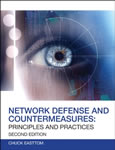All Articles
Accident Prevention & Safety
Hazardous Materials
Amusement Parks
Human Factors
Analytical Chemistry
Human Resources
Anger Management & Related Issues
HVAC - Heating, Ventilation, Air Conditioning
Antitrust
Insurance Coverage Analysis
Banking
International Trade
Coins
Languages
Commercial Diving
Marketing
Common Interest Development
Materials
Communication
Medical Devices / Inventions
Computers
Meteorology
Criminology
Nursing
Dental - Dentistry
Pharmaceuticals
Digital Forensics
Postal Services
Disability
Premises Liability
DNA (Deoxyribonucleic Acid)
Professional Skills
Dram Shop Liability
Risk Management
Emergency Medical Services (EMS)
Robots & Robotics
Energy - Utilities
Scuba Diving
Enterprise Resource Planning (ERP)
Security
Expert Witnessing
Sexual Abuse - Molestation - Harassment
Eyewitness Testimony
Slip, Trip & Fall
Forensic Analysis
Spirituality
Forgery & Fraud
Taxation
Gems & Jewelry
Trusts & Estates
More...

REAL-ESTATE-PAGE ARTICLES MAIN PAGE
. Contact Us if you are interested in having your work published on our website and linked to your Profile(s).
All Articles
Accident Prevention & Safety
Human Resources
Alcohol, Tobacco & Other Drugs
Industrial Hygiene and Safety
Amusement Parks
Insurance Coverage Analysis
Aquatics Safety
International Trade
Biomechanics
Internet Marketing
Blockchain Information
Land Use
Boating
Linguistics
Branding - Brand Management
Machinery
Business Intelligence
Medical Records Review
Chemical Industry
Meteorology
Conveyor Belts
Microbiology
Corrosion
Orthotics and Prosthetics
Counseling
Physician Assistants
Design
Police Practices & Procedures
Documentation Examination & Analysis
Professional Malpractice
Emergency Medicine
Refrigeration - Cooling Systems
Equipment Leasing
Regulations and Codes Standards
Family Issues
Research Methodology
Fires & Explosions
Robots & Robotics
Forensic Analysis
Search Engine Optimization (SEO)
Forensic Psychiatry
Social Media
Foster Care / Foster Home
Structured Settlements
Fuel Systems
Telecommunication
Gems & Jewelry
Telemedicine - Remote / Virtual Medicine
Human Factors
Yoga
More...
Featured Articles
There are no active articles here at this time. Please use the search bar, try another category, or contact us if you would like to contribute an article.
This Article is unavailable. Contact Us
Search articles by title, description, author etc.
Sort Featured Articles
Featured resources
Network Defense and Countermeasures:...
by Chuck Easttom
The Ultimate Emergency Medicine Guide
by Sajid Khan, MD
The Seven Laws of Money
by Michael Phillips
Follow us










